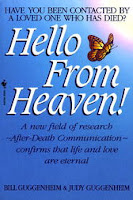Communication with the dead is a subject that immediately generates controversy. Adherents of many of the world's major religions suggest that attempting to contact the deceased falls under the realm of "not possible" at best to "strictly prohibited" at worst. And yet, there are many who have been curious to know whether it would be possible. Many who claim to have made contact are spiritual mediums utilizing the method known as a seance. Many of these people were later exposed as frauds and charlatans, although others might not be so easy to debunk.
Still, there are others in the scientific world who have wondered if it is possible to contact our deceased loved ones using other means -- namely, through technology that many of us could eventually utilize on our own. One such person who was interesting in making contact with the spirit world was none other than Thomas Alva Edison (1847-1931). Best known for his work and inventions concerning electric power, motion pictures, and sound recordings, Edison also apparently was intrigued with inventing a device that could communicate with the dead, as he told an interviewer of American Magazine in 1920.
A young Thomas Edison with one of his inventions, the tinfoil phonograph, sometime around 1877.
At first glance, Edison would seem an incredibly unlikely candidate to explore such a venture. But, as this article from Reliable Planet points out, radio and motion pictures allowed people to hear the voices and see moving images of people who were no longer living. Direct communication with the deceased, in Edison's mind, likely would seem the next logical step. While there were many who dismissed Edison's idea as a joke or even a scam, Philippe Baudouin, a French radio host and philosopher, discovered a copy of Edison's diary in a thrift store in 2015. This edition, unlike the others, contains an additional chapter laying out Edison's ideas and theories on how communication with the spirit world could be accomplished. This article at Phys.org gives some more background, but alas, no one has been able to find Edison's detailed plans or schematics, if in fact he ever did get that far.
Edison died from complications of diabetes in 1931. Interestingly enough, he appears to have had a deathbed vision. His last words, apparently spoken to his wife as he drifted in and out of consciousness, were: "It's very beautiful over there."







